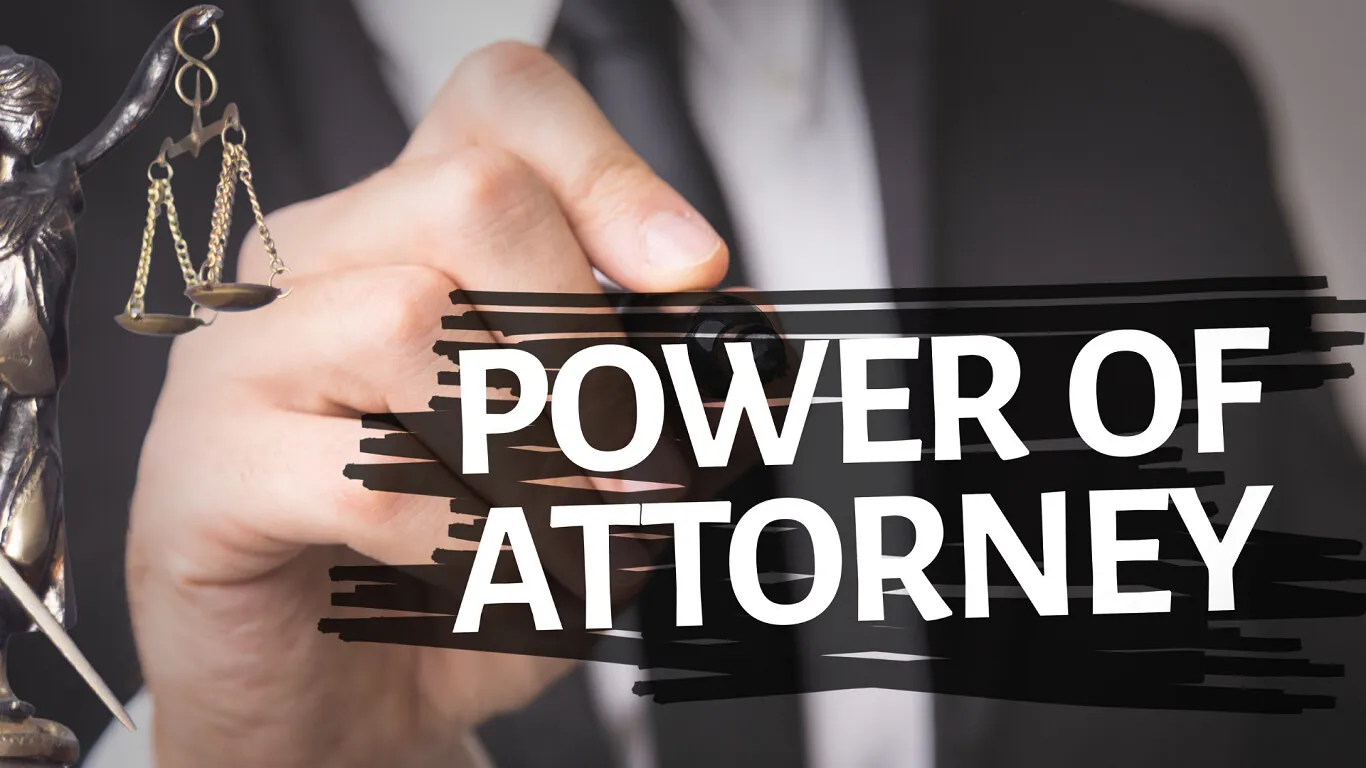A Power of Attorney (POA) is a powerful legal tool that grants a trusted personal representative or agent the authority to handle your affairs when you’re unable to do so. Understanding the importance of a POA, the reasons to have one, and the key moments to consider setting one up can help ensure your interests are always protected.
Why You Need a Power of Attorney
A POA is not only for the elderly or those with health issues. Here are several reasons why you might need one:
- Unforeseen Incapacity
- Accidents or sudden illnesses can happen at any time, leaving you unable to manage your own affairs. A POA ensures that your chosen agent can step in immediately to handle important decisions and maintain your well-being without the need for court intervention or unnecessary delays.
- Complex Financial Situations
- If you have a complex financial portfolio, a POA allows a trusted individual to manage your investments, pay bills, and oversee other financial responsibilities, ensuring that your finances remain stable and well-managed when you may not be available to handle every detail directly.
- Peace of Mind
- Knowing that someone you trust has the legal authority to act on your behalf can provide immense peace of mind. This is especially important if you have dependents or significant assets that need careful management. Additionally, for your loved ones, knowing that in the event of an emergency or accident they are able to step in and handle issues as they arise or make time-sensitive decisions allows them to focus on caring for you rather than splitting their attention between judicial proceedings and your affairs.
- Avoiding Court Intervention
- Without a POA, your loved ones may need to seek a court-appointed guardianship to manage your affairs if you become incapacitated. This process can be time-consuming, expensive, and emotionally draining. A POA simplifies this scenario by preemptively granting authority to your chosen agent.
Choosing the Right POA
The two common types of POAs are durable and springing. Each type serves different purposes and offers varying levels of authority and duration.
Durable Power of Attorney (DPOA)
- Immediate Effect:
- A Durable POA becomes effective immediately upon signing, unless otherwise specified in the document.
- Durability:
- It remains in effect even if the principal becomes incapacitated. This feature is crucial for ensuring that the agent can continue to manage the principal’s affairs if they are unable to do so themselves due to illness or disability.
- Use Cases:
- Ideal for continuous and seamless management of affairs, especially for individuals who anticipate they may become unable to manage their own affairs in the future.
- Commonly used for financial and healthcare decisions, allowing the agent to handle matters without interruption.
Springing Power of Attorney
- Conditional Activation:
- A Springing POA only becomes effective upon the occurrence of a specified event, typically the incapacitation of the principal.
- Activation Process:
- Requires proof of the triggering event, such as a doctor’s certification of the principal’s incapacity. This can sometimes cause delays and complications in activating the POA.
- Use Cases:
- Suitable for individuals who want to retain control over their affairs until they are no longer able to do so.
- Provides peace of mind for those who are concerned about granting immediate authority to an agent.
Preference Considerations
Durable POA:
- Pros:
- Immediate authority allows for swift action in managing the principal’s affairs.
- No need for proof of incapacity, avoiding potential delays.
- Ensures continuous management of affairs without gaps.
- Cons:
- The agent has immediate authority, which could be a concern if there are trust issues or if the principal wants to retain full control while they are capable.
Springing POA:
- Pros:
- Provides control to the principal until they are incapacitated.
- Reduces the risk of misuse of authority since the agent’s power is not immediate.
- Cons:
- Potential delays in activation due to the need for proof of incapacity.
- Possible legal and administrative hurdles in determining and proving the principal’s incapacity.
Why One Might Be Preferable
Durable POA is generally preferred if:
- There is a high level of trust between the principal and the agent.
- Immediate and uninterrupted management of affairs is critical.
- The principal anticipates future incapacity and wants to ensure seamless management of their affairs.
Springing POA is preferred if:
- The principal wants to retain control over their affairs for as long as possible.
- There are concerns about granting immediate authority to the agent.
- The principal desires an added layer of protection to ensure the agent’s authority is only activated when absolutely necessary.
Key Moments to Set Up a Power of Attorney
Certain life events and situations make setting up a POA particularly important. Here are some key moments to consider:
- Aging or Health Changes
- As we grow older or face health challenges, managing daily finances and decisions can become tougher. A POA ensures your affairs are in trusted hands, providing peace of mind that your financial and personal matters are managed according to your wishes.
- Medical Preparedness
- A healthcare POA is crucial for ensuring that someone can make medical decisions on your behalf if you become incapacitated. This type of POA is essential for those who want to ensure their healthcare choices are respected when they cannot voice these choices themselves.
- Business Continuity
- If you own a business, a POA can help manage your business dealings if you’re unexpectedly unavailable. This ensures that your business operations continue smoothly and without interruptions, safeguarding your financial interests and the livelihood of your employees.
- Extended Travel
- Planning to be away from home for an extended period? A POA can manage your financial and legal matters back home while you are unavailable. Whether it’s paying bills, handling investments, or managing real estate, a POA can ensure everything runs smoothly in your absence.
- Military Deployment
- For those serving in the military, a POA allows loved ones to handle your personal affairs during your deployment. This can include managing finances, making healthcare decisions, and even handling legal matters, providing you with the freedom to focus on your duties.
Who Can Overturn a Power of Attorney?
A Power of Attorney is a powerful legal document, but there are circumstances under which it can be overturned. Understanding who can overturn a POA and under what conditions is crucial for both the principal (the person who created the POA) and the agent (the person granted authority).
Principal’s Authority
- Revocation by the Principal
- The principal has the right to revoke or cancel a POA at any time, as long as they are mentally competent. This can be done by:
- Written Notice: The principal should provide a written notice of revocation to the agent and any third parties who might be relying on the POA.
- New POA: Creating a new POA that explicitly revokes the previous one.
- Destruction of the Document: Physically destroying the original POA document, though this should be done with caution and ideally accompanied by written notice.
- The principal has the right to revoke or cancel a POA at any time, as long as they are mentally competent. This can be done by:
- Mental Competency
- If the principal becomes mentally incapacitated and has not designated a durable POA (which remains effective even if the principal becomes incapacitated), the POA may become void.
Legal Authorities
- Court Intervention
- A court can intervene to overturn a POA under several conditions:
- Abuse of Authority: If the agent is found to be abusing their power or acting against the principal’s best interests, a court can revoke the POA.
- Fraud or Coercion: If the POA was created under fraudulent circumstances or coercion, a court can invalidate it.
- Incapacity of the Agent: If the agent becomes incapacitated or is otherwise unable to fulfill their duties, the court can revoke the POA.
- A court can intervene to overturn a POA under several conditions:
- Guardianship or Conservatorship
- If a court appoints a guardian or conservator for the principal, the POA may be overridden. The guardian or conservator typically has the authority to revoke or alter the POA to align with the principal’s best interests.
Family Members and Interested Parties
- Concerned Family Members
- Family members or other interested parties can petition the court to review and potentially overturn a POA if they believe the agent is not acting in the principal’s best interests. Common reasons include:
- Mismanagement of Assets: Evidence that the agent is mismanaging the principal’s assets.
- Conflict of Interest: Situations where the agent has a conflict of interest.
- Neglect or Abuse: If the agent is neglecting the principal’s needs or acting in a manner that causes concern for the principal’s wellbeing.
- Family members or other interested parties can petition the court to review and potentially overturn a POA if they believe the agent is not acting in the principal’s best interests. Common reasons include:
- Successor Agents
- If the original POA document names a successor agent, this person can take over the POA-granted responsibilities if the original agent is unable or unwilling to serve. However, a successor agent cannot revoke the POA themselves; their authority comes into play only if the original agent steps down or is removed by valid means.
Need Expert Advice?
Contact our expert team at The Law Office of Barry E. Janay, P.C. today to ensure your interests are safeguarded, no matter what life throws your way. Our experienced attorneys can help you understand the nuances of POAs and guide you in making the best decision for your unique situation.
By setting up a POA, you take a proactive step in protecting your future and ensuring your affairs are managed by someone you trust. Don’t wait until it’s too late—schedule a consultation with The Law Office of Barry E. Janay, P.C. today.







